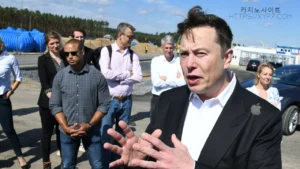The influence of the media on political opinions and beliefs
The media plays a significant role in shaping political opinions and beliefs. Through various channels such as television, radio, newspapers, and the internet, the media has the power to influence public opinion on political issues, candidates, and policies.
In this essay, I will explore the influence of the media on political opinions and beliefs and its implications for democracy.
One of the most significant ways in which the media influences political opinions and beliefs is through agenda-setting. Agenda-setting refers to the ability of the media to shape the public’s perception of what issues are important and deserving of attention.

By highlighting certain issues and downplaying others, the media can influence the public’s perception of what issues are most pressing and in need of action.
This can shape the public’s political opinions also beliefs and influence the policy priorities of elected officials.
Moreover, the media can influence political opinions and beliefs through framing. Framing refers to how the media presents information and shapes the narrative around political issues.
By framing political issues in a particular way, the media can influence how the public perceives and understands these issues. This can lead to the formation of certain political beliefs and opinions and also can influence how the public responds to political events.
Another way in which the media influences political opinions and beliefs is through the selection and presentation of news stories. By selecting certain news stories and presenting them in a particular way. The media can influence the public’s perception of political issues and events.
The media’s selection and presentation of news stories shape public political opinions also influence responses to political events.
Moreover, the media can influence political opinions and beliefs through the use of persuasive techniques such as propaganda and advertising. Propaganda refers to the use of misleading or biased information to influence public opinion.
Advertising refers to the use of persuasive techniques to promote certain political candidates, policies, or beliefs. Using these techniques, the media can shape public political opinions also responses to political events.
The media’s influence on political opinions poses significant threats to democracy. Shaping public perception also potentially causes a lack of diversity and representation in the political system.
The media’s agenda-setting and framing may marginalize certain groups and perspectives, resulting in an uninformed public opinion.
Furthermore, the media’s persuasive techniques, like propaganda and advertising. This can result in a lack of transparency and accountability in the political system.
By promoting specific candidates, policies, or beliefs, the media may undermine democracy by prioritizing certain interests over the public’s.
To address the influence of the media on political opinions and beliefs, several measures can be taken. One of the most significant measures is the promotion of media literacy among citizens.
Media literacy refers to the ability to evaluate and analyze media messages also sources critically. Promoting media literacy helps citizens navigate the media landscape, enabling them to make informed decisions about political issues and events.
Moreover, regulations on the media can ensure greater transparency and accountability in the political system. Regulations can restrict propaganda and advertising techniques in the media, mandating more transparency in ownership and funding disclosure.
This can promote greater diversity and representation in the media, leading to a more informed and diverse public opinion.
Furthermore, there is a need for greater diversity and representation in the media. By enhancing diversity and representation, the media ensures varied perspectives and voices in the political discourse.
This can lead to a more informed and diverse public opinion. Promoting greater accountability, transparency, also representation in the political system.
Conclusion
The media significantly shapes political opinions through agenda-setting, framing, news story selection, and persuasive techniques.
Yet, media influence on political opinions threatens democracy by fostering a lack of diversity. Representation, transparency, also accountability in the political system.
To address media influence on political opinions, promote media literacy. Implement media regulations, also enhance diversity and representation in the media.
These measures can enhance political accountability, transparency, and representation, ensuring that the media serves the public interest rather than a select few.
Ultimately, citizens must critically assess media messages also sources to form informed political opinions.
By engaging actively, citizens can shape political discourse and maintain a functioning, legitimate democracy that serves all citizens’ interests. 카지노사이트


